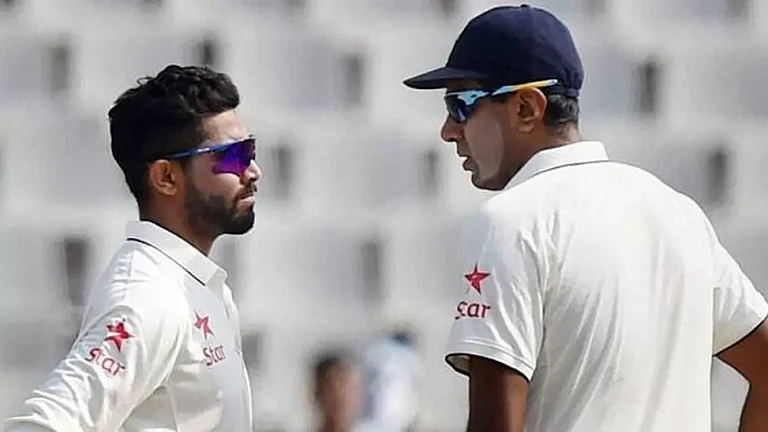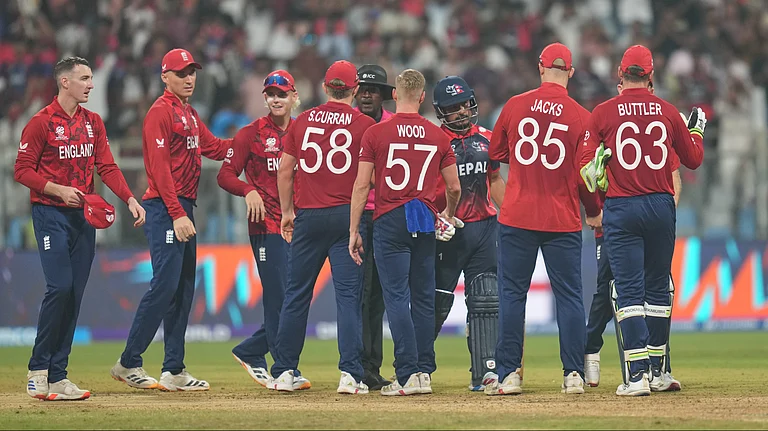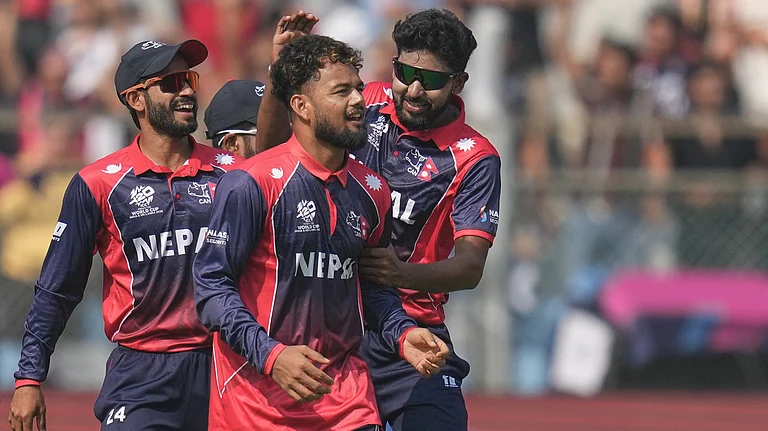India's veteran off-spinner Ravichandran Ashwin made history on Friday, February 16 when he became the second Indian bowler and ninth overall to scalp 500 Test wickets. Ashwin reached the landmark on the second day of the third Test match between India and England at Rajkot. (Scorecard | Match Blog | Cricket News)
By reaching this feat, he is the second India after the iconic Anil Kumble to take 500 scalps in Tests.
Ashwin was stuck on 499 at Vizag and needed one wicket to complete the feat but achieved it in the England first innings when he removed Zak Crawley for 15.
Highest Wicket-Takers In Tests
Muttiah Muralitharan (Sri Lanka) - 800 wickets
Shane Warne (Australia) - 708 wickets
James Anderson (England) - 695* wickets
Anil Kumble (India) - 619 wickets
Stuart Broad (England) - 604 wickets
Glenn McGrath (Australia) - 563 wickets
Courtney Walsh (West Indies) - 519 wickets
Nathan Lyon (Australia) - 517* wickets
R Ashwin (India)- 500*
Second Fastest To 500 Test Wickets
Ashwin also achieved another feat as he became the second bowler after Sri Lankan great Muttaiah Muralidaran to scalp 500 wickets in less than 100 Tests. Ashwin, who has been the fastest Indian to reach 50, 100, 150, 200, 350, 400 and 450 Test wickets, has also reached the feat with 250 and 300 Test wickets.
Overall, Ashwin is only the ninth bowler to take 500 wickets in the traditional format, scaling the landmark in his 97th Test. Having made his Test debut in 2011, Ashwin has come a long way.
The engineering graduate from Chennai started out as a top-order batter and tried his hand at medium pace bowling before settling for the role of an off-spinner, a decision that was forced by a back injury during his teenage years.
Following the Kumble and Harbhajan Singh era, Ashwin had big shoes to fill and he has done that with remarkable consistency.
In his first 16 Tests, Ashwin snared nine five-wicket hauls and became the fastest to the 300 wickets club. Ashwin has also proved his worth in the shorter formats, having played 116 ODIs for his 156 wickets in the format.
(With PTI input)



























